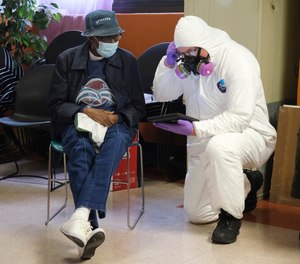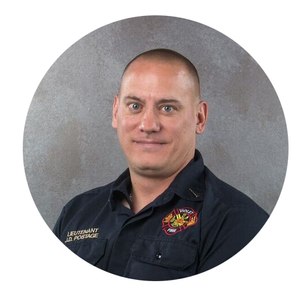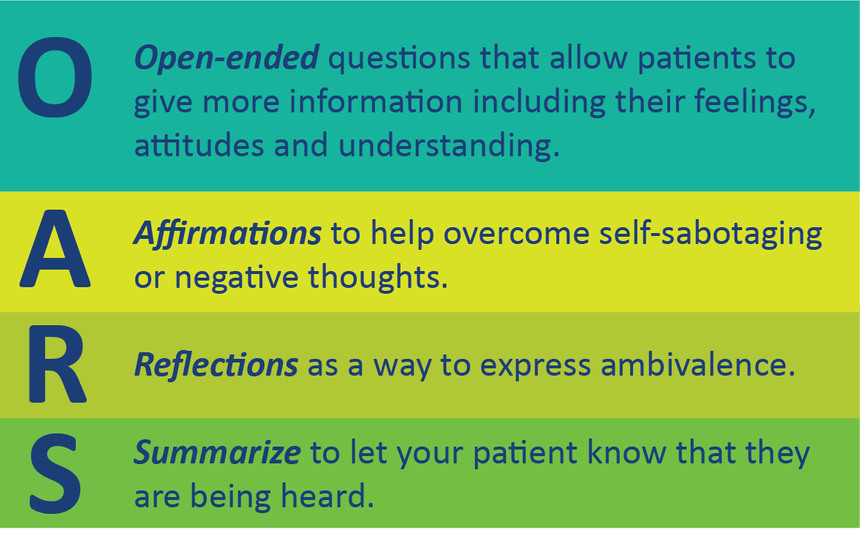5 Principles to Motivational Interviewing
See original publication: 5 principles to motivational interviewing (ems1.com)
Lieutenant J.D. Postage has impacted countless people as he’s dedicated over 20 years of his life to helping others and linking them to the resources they need to live their best lives. Now, the longtime Ohio paramedic is helping lead the rapidly evolving field of community paramedicine and mobile integrated healthcare, where he’s no stranger to the challenges associated with meeting the basic needs of his patients to keep them safe and healthy in their own homes.
In a move towards true patient-centric care, Postage looks to identify people who have fallen through the cracks of traditional healthcare to help them manage chronic health issues outside of the emergency department. Community paramedicine aims to break down the silos of care throughout the community, but requires buy-in from first responders, surrounding hospitals, community partners and most importantly – the patients.

How community paramedics interact with resistant patients can play a crucial role in the patients’ healthcare journey. (AP Photo/Seth Wenig)
ENGAGE PATIENTS TO EFFECT POSITIVE CHANGE
One of the main challenges that prevents people from achieving improved overall wellness is resistance to change. How community paramedics interact with resistant patients can play a crucial role in the patients’ healthcare journey. Postage says he responds with motivational interviewing, a psychotherapeutic approach that attempts to move an individual away from uncertainty and towards motivation to make positive changes and accomplish goals.

Lieutenant J.D. Postage. (Photo/Violet Township Fire Department (Ohio)
“You’ve got to have patience when dealing with these individuals, because they’re not going to want to change overnight. You can’t go into somebody’s home and tell them what to do,” Postage said. “You have to empower them to make a change for themselves.”
By taking the time to use motivational interviewing techniques to engage a patient, Postage says you get a chance to hear their story and begin to understand their point of view. Actively engaging with the patient can help uncover the root cause of their medical issue, like why they aren’t following through with their care plans or what they didn’t understand about their discharge instructions. Postage uses motivational interviewing as a tool to build a bridge of trust between those who have grown skeptical of the healthcare system through negative experiences.
OARS: EMPOWER PATIENTS TO COMPLY WITH MEDICAL DIRECTION
Motivational interviewing relies on clear strategies and skills to pursue the desired purpose of the community paramedic to ultimately benefit their patient. Postage outlines the five principles he abides by to be an effective and supportive motivational interviewer:
- Express empathy through reflective listening
- Develop discrepancy between patients' goals or values and their current behavior
- Avoid argument and direct confrontation
- Adjust to patient resistance rather than opposing it directly
- Support self-efficacy and optimism
When asked how to incorporate these principles into everyday operations, Lt. Postage
said to use the acronym OARS to remember to use:
- Open-ended questions that allow patients to give more information, including their feelings, attitudes and understanding
- Affirmations to help overcome self-sabotaging or negative thoughts
- Reflections as a way to express ambivalence
- Summaries to let your patient know that they are being heard

“I want to find out who this person is,” Postage said. “If you sit down and treat them like a person, they’re more likely to hear what you have to say. They’re more likely to be empowered to follow through with medical suggestions.”
Determining and understanding the patient’s goals is one of the most important aspects for community paramedics to positively impact lives. Motivational interviewing focuses on collaboration rather than confrontation to build trust between the community paramedic and their patients to knock down barriers to get to the root cause and treat their medical issues.
When looking to develop an impactful and sustainable community paramedicine program, using motivational interviewing as an evidence-based approach to connect with patients can truly make a difference on the healthcare system and help these programs expand going forward.
The latest and greatest news
From ImageTrend
Check out all the newest ImageTrend has to offer
